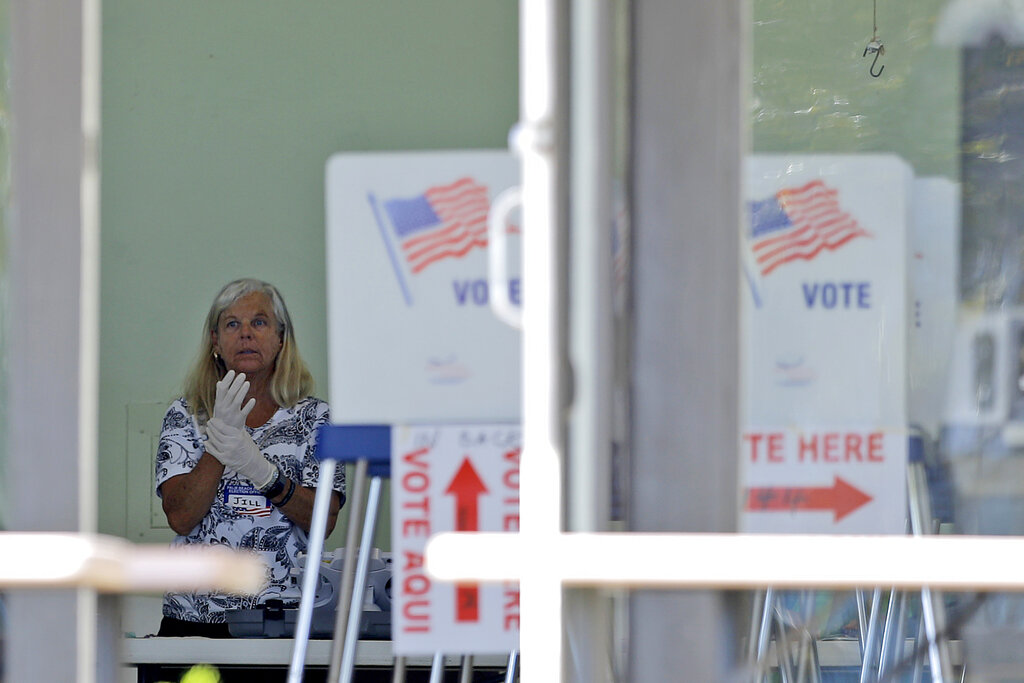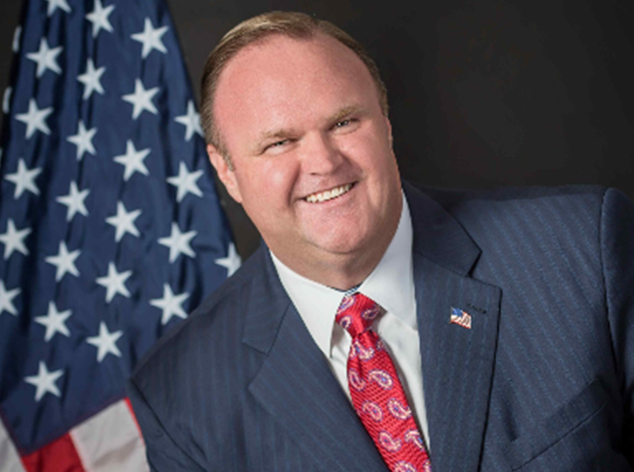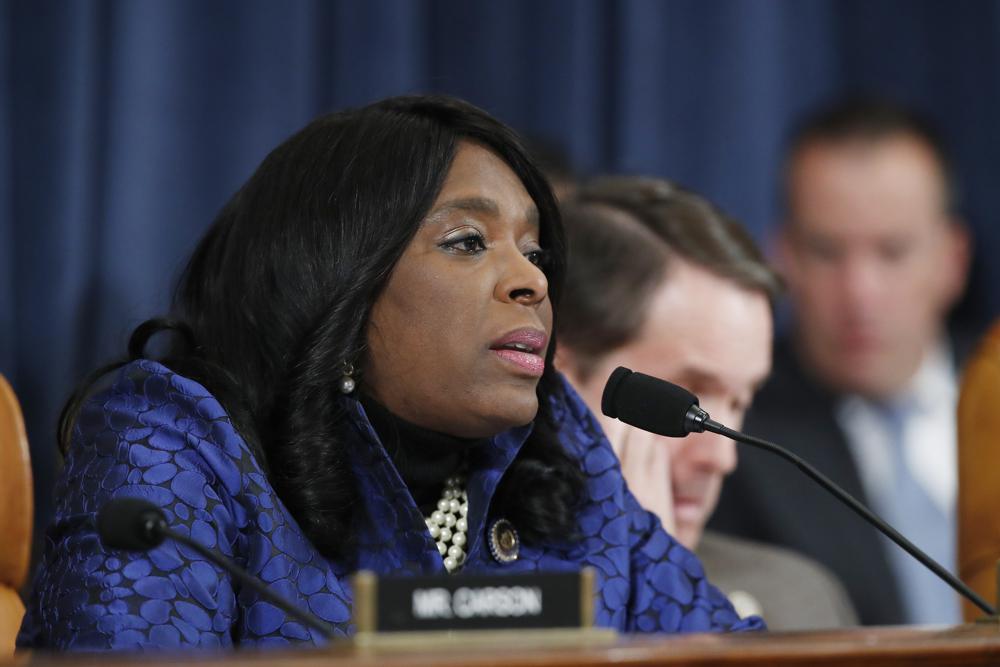Alabama Republican Party hosting Vivek Ramaswamy on Tuesday night

The Alabama Republican Party will host GOP Presidential candidate Vivek Ramaswamy in a reception Tuesday night in Hoover before the state hosts the leading Republican Presidential Debate Wednesday in Tuscaloosa. “I am pleased to have Vivek Ramaswamy joining us as we kick off debate week here in Alabama!” said Alabama Republican Party Chairman John Wahl in a statement on Tuesday. “This is a historic occasion for our state as we hold our first ever nationally televised presidential debate, and I am appreciative that one of our Party’s rising political figures will be headlining this reception for the Alabama Republican Party. I look forward to giving the people of Alabama the chance to meet Mr. Ramaswamy and showcasing our amazing state to another presidential candidate.” The event will be held at the Ross Bridge Resort on Tuesday, December 5, 2023, from 6:00 to 7:00 p.m. Ramaswamy is the latest presidential candidate to visit with the Alabama GOP this year. Florida Governor Ron DeSantis headlined the Party’s Winter Dinner in Birmingham and former President Donald Trump was the keynote speaker at their Summer Dinner in Montgomery. Barring an epic meltdown on the part of the GOP nominee, most political analysts believe that, win or lose, Alabama will vote for the GOP candidate in the 2024 presidential election (it has for the last 11 presidential elections in a row). “Alabama is one of the strongest Republican states in the nation, and I am proud we have this opportunity to host all of our presidential candidates at the upcoming debate in Tuscaloosa,” said Chairman Wahl. “Raising Alabama’s political profile is one of my top priorities as ALGOP Chairman, and I am excited this debate will continue the work the Party has been doing in this area.” Ramaswamy is a Hindu of Indian subcontinent descent. He is a successful businessman, a husband, and a father of two. He was born and raised in Cincinnati, Ohio. Growing up he was a nationally ranked tennis player and the valedictorian of his high school, St. Xavier. He went on to graduate summa cum laude in Biology from Harvard and has a law degree from Yale Law School. He has worked at a hedge fund. He started a biotech company, Roivant Sciences, where he oversaw the development of five drugs that went on to become FDA-approved. He is an author and has written extensively attacking the woke movement. Ramaswamy has embraced an “America First” foreign policy that opposes more aid for Ukraine, is skeptical of aid for Israel, and opposes guaranteeing Taiwan’s independence. Ramaswamy has had some very heated debate stage confrontations with former United Nations Ambassador Nikki Haley. In the last debate, Haley called Ramaswamy “Scum” after he pointed out that Haley’s daughter has a Tik Tok account. “I wasn’t criticizing her daughter. I was criticizing Nikki Haley,” said Ramaswamy. “She says we need a new generation of leadership. She’s on the wrong side of that generational divide.” To connect with the author of this story or to comment, email brandonmreporter@gmail.com.
Sandra Day O’Connor, who made history as the first woman on the Supreme Court, dies at 93

Ashley Murray, Alabama Reflector WASHINGTON — The first woman to serve on the nation’s highest court is dead at 93. Sandra Day O’Connor, a groundbreaking justice on the U.S. Supreme Court, died Friday in Phoenix, Arizona of complications related to advanced dementia, probably Alzheimer’s, and a respiratory illness, according to an announcement from the court. President Ronald Reagan nominated O’Connor in 1981, and she was confirmed by the full Senate, 99-0, in September of that year. The moderate O’Connor, who served on the bench until her retirement in 2006, was often the decisive vote in major cases that reached the Supreme Court in her nearly quarter-century as associate justice. The justices issued rulings in high-profile cases during O’Connor’s tenure, including Bush v. Gore, which settled the 2000 presidential contest in George W. Bush’s favor, and Planned Parenthood of Southeastern Pennsylvania v. Casey, a 5-4 decision that affirmed the constitutional right to an abortion but with leeway for states to impose some restrictions. O’Connor sided with the majority in both cases. “She was consequential,” journalist and historian Evan Thomas told the National Archives in 2019 while promoting his biography “First: Sandra Day O’Connor.” She cast the so-called “swing vote” 330 times in 24 years, Thomas said. “And where it really mattered was in abortion rights and affirmative action,” he said, referring to several cases, including Grutter v. Bullinger, which upheld the consideration of race in the University of Michigan’s law school admissions. In 2022, O’Connor’s successor, Justice Samuel Alito, wrote the majority opinion overturning Planned Parenthood v. Casey and Roe v. Wade, striking down abortion rights at the federal level. A ‘true public servant’ and ‘trailblazer’ Chief Justice John Roberts said in a statement Friday that O’Connor “blazed a historic trail as our Nation’s first female Justice.” “She met that challenge with undaunted determination, indisputable ability, and engaging candor. We at the Supreme Court mourn the loss of a beloved colleague, a fiercely independent defender of the rule of law, and an eloquent advocate for civics education. And we celebrate her enduring legacy as a true public servant and patriot,” he said. Senate Minority Leader Mitch McConnell of Kentucky said in a statement that the “nation mourns the passing of a towering figure in the history of American law.” “… From her election as the first female Majority Leader in the history of American legislatures to her confirmation as the first female Justice of the U.S. Supreme Court, Sandra Day O’Connor led with a brilliance and conviction that disarmed resistance. Her vote on the court frequently determined the majority in landmark cases, and the legacy of her role in landmark decisions reviving federalism during her first several terms on the Court continues to resound in Constitutional jurisprudence,” McConnell said. In the mid-1990s and 2000, O’Connor provided decisive votes in two 5-4 decisions that found federal laws unconstitutional under the Commerce Clause, including sections of the Violence Against Women Act and a federal law that criminalized carrying a firearm within 1,000 feet of schools. Senate Majority Leader Chuck Schumer of New York said O’Connor was the “conscience of the Court.” Schumer said in a statement issued Friday that O’Connor “was one of the true historic figures of the 20th century. In decision after decision, Sandra Day O’Connor was often the key vote in defending the rights of Americans—in protecting clean air, in protecting women’s rights, in protecting against discrimination, in protecting voting rights. I join Americans all across the country in mourning her passing today.” Speaker of the House Mike Johnson of Louisiana described O’Connor as a “trailblazer” and “legal giant” in a Friday morning post on X. “As the first woman to ever serve on the Supreme Court, Justice O’Connor inspired a generation of women — including the five female Justices that succeeded her — to chart a path that previously seemed unattainable,” he said. “Despite never serving as Chief Justice, she was widely regarded as the most powerful Justice on the bench during her tenure.” The women who followed O’Connor’s appointment to the court included Ruth Bader Ginsburg, nominated by former President Bill Clinton in 1993; Sonia Sotomayor and Elena Kagan in 2009 and 2010, both nominated by former President Barack Obama; Amy Coney Barrett, nominated by former President Donald Trump in 2020; and Ketanji Brown Jackson, nominated by President Joe Biden in 2022. Obama released a statement Friday recounting the well-known story of O’Connor’s challenges finding a job in the legal field as a woman in the 1950s, when she was asked about her typing skills and offered work as a legal secretary. “Fortunately for us, she set her sights a little higher – becoming the first woman to serve as a U.S. Supreme Court justice,” Obama said. “As a judge and Arizona legislator, a cancer survivor and child of the Texas plains, Sandra Day O’Connor was like the pilgrim in the poem she sometimes quoted – forging a new path and building a bridge behind her for all young women to follow. Michelle and I send our thoughts to Sandra’s family and everyone who learned from and admired her.” From the Southwest to the nation’s capital O’Connor was born on March 26, 1930, in El Paso, Texas, and grew up on a ranch in Arizona. She graduated near the top of her law school class at Stanford University in 1952. O’Connor began her law career as deputy county attorney of San Mateo County, California, followed by a position as a civilian attorney for Quartermaster Market Center, Frankfurt, Germany, from 1954 to 1957. O’Connor practiced law in Maryvale, Arizona, until 1960 and went on to serve as assistant attorney general of Arizona from 1965 to 1969. She followed her time in the attorney general’s office with multiple terms in the Arizona State Senate beginning in 1969 and eventually serving as the body’s majority leader. In 1975, she was elected as a Maricopa County Superior Court judge and served until 1979, when she was appointed to the Arizona Court
GOP AGs argue Colorado courts can’t remove Donald Trump from primary ballot

A coalition of 19 attorneys general filed a brief with the Colorado Supreme Court arguing an appeal to keep former President Donald Trump off the primary ballot can’t be decided by the courts. The 41-page brief, led by Republican Attorneys General Patrick Morrisey of West Virginia and Theodore Rokita of Indiana, argues Congress should decide any alleged violation of the 14th Amendment of the U.S. Constitution. The brief states the “courts have no business second-guessing Congress’s decisions to enforce – or not enforce—the Clause,” referring to the insurrection clause in the amendment. “The Fourteenth Amendment entrusts Insurrection Clause questions to Congress—not state officials or state courts,” the brief states. “The Amendment vests Congress with ‘power to enforce’ the Insurrection Clause ‘by appropriate legislation’ and power to ‘remove [the] disability’ it imposes.” The brief was filed on the same day as a brief by three Republican secretaries of state arguing the case should be dismissed because District Court Judge Sarah Wallace described Trump as an “insurrectionist.” Judge Wallace ruled in favor of Trump earlier this month. Although she wrote Trump’s speech on Jan. 6, 2021, “incited imminent lawless violence,” his words didn’t meet the amendment’s requirement of “engagement.” The attorneys general argue the definition of “insurrection” shouldn’t be decided by the courts. “For example, the term ‘insurrection’ is hardly as well defined as the district court let on,” the brief states. “And allowing each state and its courts to determine eligibility using malleable standards would create an unworkable patchwork of eligibility requirements for President.” “… In truth, an ‘insurrection’ is more serious than the district court’s definition supposes. Where the Constitution uses the term ‘insurrection,’ that term appears alongside terms like ‘invasion’ and ‘rebellion.’” The brief aligns with arguments submitted by the secretaries of state regarding a prediction of “electoral chaos” if a party’s presidential candidate appears on some state primary ballots but not on others. The brief states that Trump’s impeachment by the House of Representatives after Jan. 6, 2021, and subsequent acquittal by the Senate shows Congress hasn’t found him guilty of an infraction under the Constitution. “Congress, then, has rendered its judgment – and it disagrees with petitioners’ view that former President Trump engaged in insurrection,” the brief states. “Petitioners want this Court to try again, but ‘[f]ailure of political will does not justify unconstitutional remedies.’” Attorneys general from Alabama, Alaska, Iowa, Kentucky, Louisiana, Mississippi, Missouri, Montana, Nebraska, North Dakota, Oklahoma, South Carolina, South Dakota, Tennessee, Texas, Utah, and Wyoming joined Morrisey and Rokita in filing the brief. The Minnesota Supreme Court ruled in favor of Trump in a similar case, and an appeal in Michigan is ongoing. Republished with the permission of The Center Square.
Texas AG Ken Paxton sues Pfizer citing misrepresentation of COVID-19 vaccine efficacy

By Bethany Blankley | The Center Square contributor Texas Attorney General Ken Paxton sued Pfizer on Thursday, alleging the pharmaceutical giant unlawfully misrepresented the effectiveness of its COVID-19 vaccine and attempted to censor public discussion about it. The lawsuit comes six months after his office launched an investigation into three pharmaceutical giants in May. It was filed in the District Court of Lubbock County, Texas, and solely names Pfizer., Inc., as the defendant. Paxton alleges that Pfizer engaged in false, deceptive, and misleading acts and practices by making unsupported claims about its COVID-19 vaccine in violation of the Texas Deceptive Trade Practices Act. Because of Pfizer’s claims, “placing their trust in Pfizer, hundreds of millions of Americans lined up to receive the vaccine,” Paxton’s 54-page brief states. “Contrary to Pfizer’s public statements, however, the pandemic did not end; it got worse. “More Americans died in 2021, with Pfizer’s vaccine available, than in 2020, the first year of the pandemic. This, in spite of the fact that the vast majority of Americans received a COVID-19 vaccine, with most taking Pfizer’s.” Paxton’s lawsuit adds: “By the end of 2021, official government reports showed that in at least some places, a greater percentage of the vaccinated were dying from COVID-19 than the unvaccinated. Pfizer’s vaccine plainly was not ‘95% effective.’” By October 2022, the U.S. Centers for Disease Control and Prevention reported that roughly 226.6 million people were fully vaccinated after receiving one Johnson & Johnson dose or two doses of Pfizer-BioNTech and Moderna vaccines, the New York Times reported. Another more than 111 million people received additional booster shots at the time. The complaint notes that Pfizer’s efficacy claim was based on a “relative risk reduction” metric used during its initial, two-month clinical trial. Such metrics, according to the U.S. Food and Drug Administration, are misleading and “‘unduly influence[s]’ consumer choice.” It also states that Pfizer’s clinical trial “failed to measure whether the vaccine protects against transmission;” despite this, Pfizer “embarked on a campaign to intimidate the public into getting the vaccine as a necessary measure to protect their loved ones.” When efficacy failed, “Pfizer then pivoted to silencing truth-tellers,” Paxton argues. The brief states, “How did Pfizer respond when it became apparent that its vaccine was failing and the viability of its cash cow was threatened? By intimidating those spreading the truth, and by conspiring to censor its critics. Pfizer labeled as ‘criminals’ those who spread facts about the vaccine. It accused them of spreading ‘misinformation.’ And it coerced social media platforms to silence prominent truth-tellers.” The lawsuit follows an investigation Paxton launched into Pfizer, Moderna, and Johnson & Johnson in May to determine if the companies engaged in gain-of-function research and misled the public about their practices. The investigation sought to determine if the companies misrepresented the efficacy of their COVID-19 vaccines and violated the Texas Deceptive Trade Practices Act. Investigators also looked into potential manipulation of vaccine trial data and the “relative risk reduction” method that was used instead of “absolute risk reduction” method. Paxton’s lawsuit stems from information it received after sending Civil Investigative Demands to the pharmaceutical giants. The COVID-lockdown era “was a deeply challenging time for Americans,” Paxton said when launching the investigation. “If any company illegally took advantage of consumers during this period or compromised people’s safety to increase their profits, they will be held responsible. If public health policy was developed on the basis of flawed or misleading research, the public must know. The catastrophic effects of the pandemic and subsequent interventions forced on our country and citizens deserve intense scrutiny, and we are pursuing any hint of wrongdoing to the fullest.” The federal government under former President Donald Trump entered into a $1.9 billion agreement with Pfizer, which was approved by the U.S. Food and Drug Administration on Dec. 11, 2020. Trump pushed the Pfizer-BioNTech COVID-19 vaccine through what he called “Operation Warp Speed,” making it available through Emergency Use Authorization as an experimental drug. Operation Warp Speed spent $12.4 billion on the vaccines, TIME reported. As Pfizer declared its vaccine was “95% effective,” on Dec. 17, 2020, Trump tweeted, “The Vaccine and the Vaccine rollout are getting the best of reviews. Moving along really well. Get those ‘shots’ everyone!” After he lost his reelection, at an RNC event at Mar-a-Lago in April 2021, Trump said everyone should refer to the COVID-19 vaccines as the “Trumpcine.” In a January 2022 interview, he said the “vaccines saved tens of millions throughout the world.” His former White House domestic policy advisor Joe Grogan also said Trump “handed [President Joe] Biden three vaccines,” TIME reported. “Biden is just really making our COVID response look a lot better than the media gave us credit for.” Trump continues to take credit for the vaccines, arguing they are effective and saved lives. Republished with the permission of The Center Square.
Gerrick Wilkins survives attempted candidate challenge

The Alabama Republican Party candidates committee met on Sunday to hear challenges to candidates on the GOP ballot. Sources say that there was a challenge brought against the candidacy of Gerrick Wilkins. Wilkins is running for Alabama’s Sixth Congressional District. Wilkins has been charged with making a contribution to the Libertarian party. A search of the Federal Elections Commission website revealed that Wilkins had donated $250 to the Libertarian National Committee on September 5, 2022. Most of Wilkins’ contributions are to Republican candidates and causes. Wilkins has made numerous political contributions over the years, including to the Alabama Republican Party, Donald Trump for President in 2024, Tim Scott for President, Ron DeSantis for President, John McCain for President in 2008, Fred Thompson for President, and the Republican Party of Florida. The Alabama Republican Party State Executive Committee made a bylaws change in 2022 to forbid a person who donates to Democratic, independent, and third-party candidates from running as a Republican. Wilkins’s contribution to the Libertarian Party was after this prohibition was placed on supporting non-Republican campaigns. People who have donated to non-Republican campaigns and groups are barred from running for office as a Republican for five years. Sources close to the ALGOP told Alabama Today that the candidate’s committee would meet in Birmingham on Sunday to hear the challenge against Wilkins. The committee reportedly voted 9 to 8 not to formally challenge Wilkins’ eligibility to run as a Republican. Election challenges will be heard on December 10. The Wilkins campaign dismissed the allegations, saying that he has far more donations to Republican candidates than he did to Libertarians. A source close to ALGOP told Alabama Today that the bylaw prevents potential candidates from donating to non-Republican candidates. Wilkins did not do that. He actually donated to the Libertarian Party. That is not forbidden in the new bylaws change. The ALGOP candidates committee is the 21-member Alabama Republican Party Steering Committee. Wilkins’ victory in the closed-door GOP meeting in Hoover means he can remain on the ballot. Wilkins, a car dealer, will face incumbent Congressman Gary Palmer (R-Hoover) and independent insurance agent Ken McFeeters in the March 5 Republican Primary. The eventual Republican nominee will face Democrat Elizabeth Anderson in the November 5 general election. To connect with the author of this story or to comment, email brandonmreporter@gmail.com.
Vivek Ramaswamy to hold event in Alabama prior to debate

The top Republican presidential candidates are coming to Alabama on December 6 for the third Republican Presidential Debate. At least one of the presidential candidates will be arriving early to Alabama. Vivek Ramaswamy will be in Hoover on December 5 for a fundraising reception with the Jefferson County Republican Party. The event will be on Tuesday, December 5, from 5:30 to 7:30 PM at the Ross Bridge Hotel in Hoover at 4000 Grand Avenue. Individual tickets start at $100 each. In addition to Ramaswamy, Jefferson County Republican Party candidates are expected to be in attendance. The event will be held the evening before the fourth Republican Presidential Debate. Ramaswamy is participating in the Republican presidential debate in Tuscaloosa along with former Ambassador to the United Nations Nikki Haley, Florida Governor Ron DeSantis, and former New Jersey Governor Chris Christie. Republican frontrunner former President Donald Trump has not participated in any of the debates and is not expected to participate in the Alabama presidential debate either. If elected, Ramaswamy, who is of Indian descent, would be the first Hindu President of the United States. Ramaswamy is a successful businessman who is running as an outsider. He is married and has two children. He was born and raised in Cincinnati, Ohio. Growing up he was a nationally ranked tennis player and the valedictorian of his high school, St. Xavier. He went on to graduate summa cum laude in Biology from Harvard and has a law degree from Yale Law School. He has worked at a hedge fund. He started a biotech company, Roivant Sciences, where he oversaw the development of five drugs that went on to become FDA-approved. He is an author and has written extensively attacking the woke movement. His foreign policy views, especially his criticism of the U.S. support for Ukraine in their war against Russia, have been controversial. The Alabama Presidential primary is on March 5 – Super Tuesday. The Republican nominee will face incumbent President Joe Biden in the general election on November 5. To connect with the author of this story or to comment, email brandonmreporter@gmail.com.
Rep. Terri Sewell says 8th Circuit Court Voting Rights Act ruling is “deeply disturbing”

On Monday, Congresswoman Terri Sewell (D-AL07) called Monday’s ruling by the 8th U.S. Circuit Court of Appeals on Section 2 of the Voting Rights Act “deeply disturbing and wrong as a matter of law.” “This ruling by the 8th Circuit Court of Appeals is deeply disturbing and wrong as a matter of law,” Rep. Sewell said. “If allowed to stand, it would be the death knell of the Voting Rights Act, stripping individuals and civil rights groups of their ability to fight back against voter discrimination in court. The Supreme Court must reverse this disastrous ruling without delay. “I’m calling on Congress to immediately pass the John R. Lewis Voting Rights Advancement Act,” said Sewell. We cannot allow extremists to strip away the remaining protections of the VRA.” Critics argue that the John R. Lewis Voting Rights Act tramples on states’ rights and would give the federal government unprecedented control over how states conduct elections. The three-judge panel of the 8th Circuit ruled that the Voting Rights Act of 1965 does not allow private citizens or civil rights groups to sue the government over the Voting Rights Act. The panel for the United States Court of Appeals for the Eighth Circuit ruled Monday that only the U.S. Department of Justice can bring a civil rights complaint under the Voting Rights Act. The Arkansas State Conference of the NAACP and the Arkansas Public Policy Panel filed a lawsuit over House redistricting lines, saying they diluted the black vote. The federal district judge who heard the case, a Donald Trump appointee, dismissed the lawsuit in 2022, ruling that the plaintiffs did not have standing to bring the lawsuit. A lower court said only courts assumed in the past 50 years that private citizens or groups could bring a Voting Rights Act lawsuit. Two of the three judges on the panel agreed with the lower court. Arkansas Attorney General Tim Griffin called the ruling a “victory for our citizens and the rule of law.” “For far too long, courts across the country have allowed political activists to file meritless lawsuits seeking to seize control of how states conduct elections and redistricting,” Griffin said. “This decision confirms that enforcement of the Voting Rights Act should be handled by politically accountable officials and not by outside special interest groups.” In Alabama, private citizens and civil rights groups sued the state, arguing that the 2021 redistricting by the state legislature violated the Voting Rights Act because the Black minority in the state only got to choose one member of the state’s congressional delegation. A federal three-judge panel ruled that they were right and ordered redistricting by a court-appointed special master. Monday’s decision does not apply directly to Alabama because the state is in the 11th Circuit and not the 8th, but this will almost certainly be appealed to the Supreme Court, which likely will decide this issue for the whole country. To connect with the author of this story or to comment, email brandonmreporter@gmail.com.
Case seeking to bar Donald Trump from 2024 ballot appealed to Colorado Supreme Court

Chase Woodruff, Alabama Reflector November 21, 2023 This story was originally published on Colorado Newsline. The widely anticipated next phase of a challenge to former President Donald Trump’s constitutional eligibility to seek office again began on Monday with separate appeals filed by Trump and the plaintiffs who brought the case to the Colorado Supreme Court. A Denver District Court judge ruled last week that Trump should be placed on Colorado’s March presidential primary ballot, rejecting a lawsuit filed by six Colorado voters who argue that the Republican frontrunner is disqualified from office under a Civil War-era insurrection clause. Although Judge Sarah B. Wallace ruled that Trump “engaged in insurrection” within the meaning of Section 3 of the 14th Amendment — which prohibits anyone who did so after taking an oath to support the Constitution from holding office again — she held that the clause does not apply to the presidency. Wallace’s order instructed Secretary of State Jena Griswold, a Democrat, to place Trump on the ballot when certifying the list of primary candidates on Jan. 5. The ruling drew an appeal first from Trump’s attorneys, who wrote that while they were satisfied with the outcome, Wallace’s opinion also contained “multiple grave jurisdictional and legal errors,” including her finding that Trump “incited an insurrection on Jan. 6, 2021.” “President Trump seeks review to ensure that if this Court takes up this case on appeal, it will consider the full scope of the constitutional, interpretive, and evidentiary issues,” Trump’s attorneys wrote to the Colorado Supreme Court, listing eleven different legal issues they want the state’s highest court to consider. The list of issues revives many of the arguments Trump’s team made during a five-day trial in district court earlier this month, including questioning the definitions of “insurrection” and “engaging” under Section 3, disputing the secretary of state’s authority to disqualify candidates under the clause and attempts to discredit the investigation into the Jan. 6 attack on the Capitol conducted by a select U.S. House of Representatives committee. Plaintiffs in the case, backed by the nonprofit Citizens for Responsibility and Ethics in Washington, filed their own appeal late on Monday, calling the finding that Section 3 does not apply to the presidency “nonsensical.” That theory was first put forward in 2021 by two conservative law professors, Josh Blackman and Seth Tillman, who argue that the section’s reference to “an officer of the United States” does not include the president. Gerard Magliocca, a scholar of 19th-century constitutional law, was called as an expert witness by the plaintiffs during this month’s trial and testified that the position taken by Blackman and Tillman “so far is in the minority” among academics who have studied the question. Echoing Magliocca, the plaintiffs’ appeal cited several pieces of historical evidence showing that Section 3, which was ratified in 1868 and aggressively enforced against ex-Confederates for a period of several years, was understood to apply to the president at the time. “Excluding the President and the Presidency from Section 3 would make no sense,” the plaintiffs wrote. “There would be no reason to prohibit insurrectionists from serving as mere presidential electors, and from holding every other office in the land, while allowing them to hold most the powerful and hence most dangerous office. Nor would there be any reason to allow insurrectionist former Presidents to hold office again, while excluding former low-level state officers.” Attempts to bar Trump from the ballot under the 14th Amendment have been rejected by courts in several other states, including Michigan and Minnesota. But CREW and its supporters have sought to portray Wallace’s ruling in Colorado as a victory as they continue to build their case against Trump’s eligibility across the country. “We always knew this case would end up before the Colorado Supreme Court, and have been preparing for that from the beginning,” Noah Bookbinder, CREW’s president, said in a press release Tuesday. “We are planning to build on the trial judge’s incredibly important ruling that Donald Trump engaged in insurrection, and we are ready to take this case as far as necessary to ensure that Donald Trump is removed from the ballot.” Colorado Newsline is part of States Newsroom, a network of news bureaus supported by grants and a coalition of donors as a 501c(3) public charity. Colorado Newsline maintains editorial independence. Follow Colorado Newsline on Facebook and Twitter. Alabama Reflector is part of States Newsroom, a network of news bureaus supported by grants and a coalition of donors as a 501c(3) public charity. Alabama Reflector maintains editorial independence. Follow Alabama Reflector on Facebook and Twitter.
Katie Britt, Marsha Blackburn, and Senate colleagues introduce bill to combat child recycling

U.S. Senator Katie Britt (R-Alabama) recently joined Senator Marsha Blackburn (R-Tennessee) and 16 of their Senate Republican colleagues in introducing the Preventing the Recycling of Immigrants is Necessary for Trafficking Suspension (PRINTS) Act. This legislation is aimed at combatting human trafficking and child recycling by giving U.S. Customs and Border Protection (CBP) the authority to fingerprint non-citizens under the age of 14. The bill would require the U.S. Department of Homeland Security (DHS) to publicly report the number of apprehensions in a given month involving child traffickers who falsely claimed that an accompanying child was a relative and submit an annual report to Congress identifying the number of minors who were fingerprinted pursuant to this Act. The PRINTS Act removes the Attorney General’s authority to waive fingerprinting requirements for those illegally crossing the southern border and criminalizes child recycling. “This Administration continues to turn a blind eye to the tragic human costs of its reckless agenda,” stated Senator Britt. “The reality is that President Biden’s border policies are anything but compassionate. Every single day, untold numbers of vulnerable children are being trafficked and recycled across our porous southern border. These innocent girls and boys are not living the American Dream – they’re facing an American nightmare. Meanwhile, women and men continue to be viciously trafficked by the cartels, and American families and communities continue to be devastated by the deadly fentanyl flowing into our nation. Enough is enough. It is past time to end this unprecedented humanitarian and national security crisis. Yet again, my Senate Republican colleagues and I are offering commonsense solutions to do just that.” “Under President Biden’s open border policies, we are witnessing a devastating humanitarian crisis, and children are the primary victims,” said Senator Blackburn. “Abusing and using a child again and again is one of the most heinous acts imaginable, and yet it happens every day along the southern border. Empowering border patrol agents to fingerprint non-citizens under the age of 14 would give them the tools they need to identify victims of child recycling and stop this abuse in its tracks. Given that the Biden administration just carelessly lost track of 85,000 migrant children, passing this legislation could not be more critical.” One in every three human trafficking victims is a child. The Washington Times reported that in 2019, ICE identified 600 children who were “recycled,” with one child being brought across the border as many as eight different times. According to recent reporting by the New York Times, the Department of Health and Human Services has lost track of over 85,000 children released to sponsors, potentially subjecting these children to exploitation, abuse, and force. Despite these statistics, current DHS regulations and federal law prohibit Border Patrol agents from fingerprinting children under the age of 14. Earlier this year, during a Senate Appropriations Subcommittee for Labor, Health and Human Services, Education, and Related Agencies hearing, Senator Britt questioned Department of Health and Human Services (HHS) Secretary Xavier Becerra about the Administration’s reckless policies regarding the treatment of unaccompanied migrant children. Katie Britt is the Ranking Member of the U.S. Senate Appropriations Subcommittee on Homeland Security. To connect with the author of this story or to comment, email brandonmreporter@gmail.com.
Rosalynn Carter acclaimed by admirers for her pioneering advocacy for mental health, caregiving

John McCosh, Alabama Reflector November 20, 2023 This story was originally published on Georgia Recorder. Former first lady Rosalynn Carter has died, according to the Carter Center, leaving a rich legacy of championing mental health and women’s rights. She will be buried at the ranch house in Plains she and former President Jimmy Carter built in 1961. She died Sunday just days after the family announced she had entered hospice at the home. Carter was 96. She was married for 77 years to Jimmy Carter, who is now 99 years old and entered hospice early this year. “Rosalynn was my equal partner in everything I ever accomplished,” Jimmy Carter said in a statement on the center’s website. “She gave me wise guidance and encouragement when I needed it. As long as Rosalynn was in the world, I always knew somebody loved and supported me.” Tributes poured in from across the political spectrum Sunday, a testament to her broad popularity that transcended partisan politics and her enduring contributions to causes and charities that stoked her passion. President Joe Biden and First Lady Jill Biden on Sunday were at Naval Station Norfolk in Norfolk, Virginia, participating in a Friendsgiving dinner with service members and military families from the USS Dwight D. Eisenhower and the USS Gerald R. Ford. “Time and time again, during the more than four decades of our friendship – through rigors of campaigns, through the darkness of deep and profound loss – we always felt the hope, warmth, and optimism of Rosalynn Carter,” the president said in a statement. “She will always be in our hearts. On behalf of a grateful nation, we send our love to President Carter, the entire Carter family, and the countless people across our nation and the world whose lives are better, fuller, and brighter because of the life and legacy of Rosalynn Carter.’’ Georgia Democratic Sen. Jon Ossoff said Georgia and the country are better places because of Carter’s contributions. “A former First Lady of Georgia and the United States, Rosalynn’s lifetime of work and her dedication for public service changed the lives of many,’’ Ossoff said. “Among her many accomplishments, Rosalynn Carter will be remembered for her compassionate nature and her passion for women’s rights, human rights, and mental health reform.’’ Georgia Republican Gov. Brian Kemp paid tribute to her, recalling her service as Georgia’s first lady during Jimmy Carter’s term as governor starting in 1971. “A proud native Georgian, she had an indelible impact on our state and nation as a First Lady to both,” Kemp said in a statement. “Working alongside her husband, she championed mental health services and promoted the state she loved across the globe. President Carter and his family are in our prayers as the world reflects on First Lady Carter’s storied life and the nation mourns her passing.’’ Former President Donald Trump said on X that he and his wife, Melania joined in mourning Carter. “She was a devoted First Lady, a great humanitarian, a champion for mental health, and a beloved wife to her husband for 77 years, President Carter,” said Trump. Georgia GOP Congressman Rick Allen posted on the X social media platform: “Rosalynn was a beloved Georgian and dedicated her life to serving others. Our nation will miss her dearly, but her legacy will never be forgotten.” Former U.S. House Speaker Nancy Pelosi called Carter “a saintly and revered public servant” and a leader “deeply driven by her profound faith, compassion and kindness.” Pelosi, a California Democrat, recalled how Carter, while her husband was serving as Georgia governor, was moved by the stories of Georgia families touched by mental illness and took up their cause, despite the stigma of the time. “Later, First Lady Carter served as honorary chair of the President’s Commission on Mental Health: offering recommendations that became the foundation for decades of change, including in the landmark Mental Health Systems Act,” Pelosi said. “At the same time, First Lady Carter was a powerful champion of our nation’s tens of millions of family and professional caregivers.” The eldest of four children, Rosalynn was born at home in Plains on Aug. 18, 1927. One of her best childhood friends was Ruth Carter, Jimmy’s younger sister. Jimmy Carter’s mother, Lillian, was a nurse who treated Rosalynn’s father when he was ill with leukemia. Rosalynn enrolled at Georgia Southwestern College in 1945 after she graduated from Plains High School with honors. Jimmy Carter was home on leave from the U.S. Naval Academy in Annapolis that fall when he asked her to go to a movie. By Christmas, he’d proposed to her, but she turned him down because things were moving too fast for her. He soon asked again, and the couple married at Plains Methodist Church on July 7, 1946, a month after Jimmy graduated from Annapolis. As Jimmy Carter climbed the Navy’s ranks, the couple started a family with sons John William arriving in 1947, James Earl III (“Chip”) in 1950, and Donnell Jeffrey in 1952. Daughter Amy was born in 1967. Carter was accepted into an elite nuclear submarine program, and the young family then moved to Schenectady, N.Y. But when his father fell ill, Jimmy left his commission and moved back to Plains to take care of the family’s peanut business. Rosalynn was an active campaigner during her husband’s political climb, beginning with his run for state senator in the early 1960s. By the time he was elected president in 1976, she vowed to step out of the traditional first lady role. Five weeks after Inauguration Day, the President’s Commission on Mental Health was established with Rosalynn serving as honorary chairperson. The Mental Health Systems Act, which called for more community centers and important changes in health insurance coverage, passed in 1980 at her urging. In 1982, the couple founded the Carter Center in Atlanta, with a mission to “wage peace, fight disease and build hope.” She later founded the Rosalynn Carter Institute for Caregiving at the school now known
Congressional candidate Caroleene Dobson promises to limit Tik Tok influence and prevent social media companies from silencing conservative voices

On Thursday, Congressional candidate Caroleene Dobson released a statement promising that she will lead efforts to block the influence of the Chinese-owned TikTok video app and prevent social media conglomerates from silencing conservatives on their platforms if elected to Congress. Dobson, a Montgomery real estate attorney, is a Republican candidate for Alabama’s Second Congressional District seat. “As relations between China and the U.S. continue to erode and every expert agrees that cyber warfare is a real and looming threat, more than 150 million Americans have willingly surrendered their personal information to the Chinese-owned TikTok video app,” Dobson said. “At the same time, those who express opinions contrary to woke ideas and liberal dogma on their social media pages are routinely sent to ‘Facebook jail’ or have their accounts permanently revoked like President [Donald] Trump.” “When social media owners can silence a president and shadow ban all conservative thought with which they disagree, they assume the powers of Third World, Banana Republic dictators,” Dobson continued. “And when the Chinese Communist Party can access the personal information of millions of Americans at any time they wish, we are allowing them to weaponize the internet and placing their fingers upon the trigger.” Dobson promised that she would join the ever-growing number of congressional conservatives who are sponsoring legislation and promoting ideas that will stem the control of social media by the Chinese government and extremist liberal interests. Dobson noted that TikTok is owned by Beijing-based ByteDance Ltd. and is by law obligated under China’s “National Intelligence Law” to turn over any information on its American users that is demanded by the ruling Communist Party. During a congressional hearing held earlier this year, the chief executive officer of TikTok also deflected questions about Community Party ties and influence within the company. Dobson pointed to an internal company post by a senior Facebook engineer as evidence of the almost universal liberal domination of the popular social media platform and the contempt that conservative beliefs generate. The post, which was reported by the New York Times, read: “We are a political monoculture that’s intolerant of different views. We claim to welcome all perspectives but are quick to attack — often in mobs — anyone who presents a view that appears to be in opposition to left-leaning ideology.” Dobson has a bachelor’s degree from Harvard and a law degree from the Baylor School of Law. She is married and has two children. She serves on the Alabama Forestry Commission and the Southeast Livestock Exposition and is a member of the Birmingham Chapter of the Federalist Society. Dobson grew up on a cattle farm in Alabama and excelled in high school rodeo. Congressional District 2 has been heavily redrawn ahead of this election. Previously, CD2 was 28% Black. The court-appointed special master redrew Congressional District 2 so that it is now 48.7% Black. It includes all of Montgomery County, the eastern half of the Blackbelt, the northern half of the Wiregrass, and part of Alabama southwest, including most of the City of Mobile. According to data prepared by the special master, there is over a 94% likelihood that a Democrat will win the district. The special master redistricted Second Congressional District incumbent Rep. Barry Moore (R-Enterprise) and all of Coffee County out of Congressional District 2 and into Congressional District 1. Moore is challenging incumbent Jerry Carl (R-Mobile) in the First District, so Congressional District 2 is a rare open seat. State Senator Greg Albritton of Atmore, former State Senator Dick Brewbaker, real estate broker attorney Hampton Harris, former Congressional staffer and restauranteur Karla M. DuPriest, football star Wallace Gilberry, Stacey T. Shepperson, and Belinda Thomas are all also running in the Republican primary. The major party primaries are on March 5. If necessary. There will be a Republican primary runoff election on April 16. Thirteen Democrats are running in the Democratic primary. The Republican and Democratic nominees will face off on the November 5 presidential election ballot. To connect with the author of this story or to comment, email brandonmreporter@gmail.com.
MARC panelists predict 2024 election will be Donald Trump versus Joe Biden

On Saturday, four political pundits addressed the membership of the Mid-Alabama Republican Club (MARC) in Vestavia Hills about the coming 2024 presidential election year. The MARC panel included syndicated columnist former State Representative Steve Flowers (R-Troy). Flower’s columns can be read weekly here at Alabama Today. Alabama Today President and Publisher Apryl Marie Fogel served on the expert politico panel. Fogel is a former talk radio host in the Montgomery market. Rounding out the panel were Alabama Public Television’s Capital Journal host Todd Stacy and former Alabama Republican Chairman Marty Connors. Connors chairs the Alabama Center Right Group. The panel was moderated by former State Rep. Paul DeMarco (R-Homewood). DeMarco, a prominent Birmingham attorney, is also a former MARC President and the former Chairman of the Jefferson County Republican Party. DeMarco’s columns can also be read at Alabama Today. DeMarco asked the panel about the Alabama Republican Presidential Debate scheduled for next month in Tuscaloosa. The panel was skeptical that anyone on stage could win the GOP nomination. “I really think the debates are irrelevant,” Flowers said. “[Donald] Trump has the nomination.” “I imagine it will be Trump and Biden,” said Fogel. “We have some really great candidates, but does it matter?” Stacey said. “You have two candidates in Nikki Haley and Ron DeSantis.” Recent national polling has President Joe Biden’s job approval at just 37% – a new all-time low for a President in their third year. More troubling for Democrats is the polling in the swing states. In recent polls, Trump leads Biden 49 to 44 in Arizona, 49 to 43 in Georgia, 48 to 43 in Michigan, 52 to 41 in Nevada, 42 to 35 in Ohio, 48 to 44 in Pennsylvania, and 45 to 37 in Texas. The only swing state where Biden is currently leading Trump is Wisconsin, where he leads Trump to 47 to 45. When the New York Times substituted Gov. Ron DeSantis for Trump, he beats Biden 48 to 44 in Wisconsin. Former Ambassador Nikki Haley leads Biden 53 to 39 in Wisconsin – showing that support for Biden is extremely soft at this point. DeMarco asked the panelists if that polling was scaring Democrats. “The polls are really bad looking for Biden,” said Flowers. “I like what we are seeing in the polls,” said Fogel. “You can see a scenario where he bows out,” Stacy said. “He makes the decision that he doesn’t want to run again, and then they get another nominee.” “You can change horses, but it would have to be somebody who has already qualified,” Connors said. “I think it is too late for it to be somebody else,” said Flowers. On Tuesday, Republican Governor Tate Reeves won reelection with a margin of less than four points. Democratic Governor Andy Beshears defeated Attorney General David Cameron in Kentucky. Republicans in Virginia lost control of the General Assembly. Voters voted in favor of a pro-choice and pro-gender transition plank in their state Constitution. DeMarco asked if Tuesday’s election results were disappointing for Republicans. “Going into 2022, the Democrats are really on their heels,” Stacy said. “The economy is crummy. The President is crummy. Democrats should be on their heels.” “The lessons from Ohio and Virginia are on the abortion issue,” Stacy said. “Republicans have not been adept at this.” “Democrats say that Republicans want to take your rights away,” Stacy continued. “That is what they are going to cling to.” Connors said that Republicans need better messaging on how much they care for the child after it is born. “I don’t view those races as precursors to next year,” Flowers said. “There is a lot of infighting within the Republican party,” Fogel stated. Fogel recalled how the nation just watched the Republicans in the House of Representatives divide into different sides over who the Speaker was. “We need to remember who the enemy is,” Fogel said. DeMarco asked if the Republican National Committee Chair, Ronna Romney McDaniel, needs to be replaced. “I think there is a fatigue issue with her,” Connors said. “We have had three elections in a row under her where Republicans did not do well.” “I absolutely think we need a new Party Chair,” said Fogel. “We have lost the momentum on the ground.” “I am not sure how much it really matters,” said Stacy. “The RNC has become a lot less influential and powerful than it once was.” The MARC steering committee announced that it has recommended that Birmingham area attorney Janey Whitney be President of the Club for 2024. The MARC meets on the second Saturday of every month in the Vestavia Hills Public Library at 8:30 a.m. To connect with the author of this story or to comment, email brandonmreporter@gmail.com.


